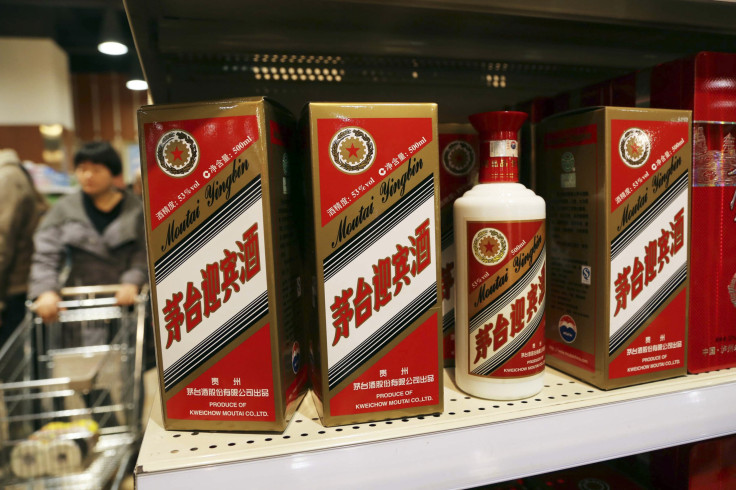Chinese Baijiu Liquor With Gold Flakes Could Soon Hit Market

With its reputation as a lavish mainstay at official and business banquets in China, the popular liquor baijiu has been a target of Beijing’s ongoing crackdown on corruption and overspending. And it might be about to get even fancier: The country's National Health and Family Planning Commission has been soliciting public and professional advice on scrapping its ban of gold flakes as a liquor additive, according to local media reports.
“The association just received this request for opinions,” Ma Yong, deputy secretary-general of the China National Food Industry Association’s baijiu department, told Beijing Times. “But I don’t understand what the point of adding gold flakes to baijiu is.” Ma added that the commission should focus on whether local producers have the technical expertise to add the metal safely. The commission had apparently started seeking opinions as of Jan. 28, reported the paper.
Gold flakes are currently banned as an additive for use in spirits under safety regulations. Up to 0.02 grams of gold could be added to every 1,000 grams of liquor if the proposal is passed, the health authority’s report said. Baijiu is a clear drink usually distilled from sorghum, which can have about 40 percent to 60 percent alcohol by volume. Sometimes considered to be China's vodka, baijiu is typically served warm, with the most popular type tasting like soy sauce.
A self-professed baijiu lover known only as Mr. Zhao told Beijing Times that he has had gold-flecked baijiu in the country two to three years ago, but that with the health commission’s blessing such liquors could become more widespread. Still, he's not impressed. “The price of liquor with gold leaf can cost some 300 yuan ($48, per bottle), but a similar drink without it merely costs dozens of yuan.”
While Chinese health authorities have determined that gold can be safely ingested, they have dismissed any possible health benefits from its consumption. A non-approved gold-infused baijiu sold on the market last year called “Gold Leaf Spirit” was priced at 3,999 yuan ($640), touting increased energy and detox capabilities. Other gold-infused drinks exist in the Western market, such as the Swiss cinnamon schnapps Goldschläger and the German herbal liqueur Goldwasser, but they are hard to find in China, as opposed to the ubiquitous baijiu.
Baijiu has seen its sales growth level off as China’s central government cracks down on corruption and lavish consumption by officials since President Xi Jinping took power in 2013. Leading baijiu brand Moutai, outselling vodka worldwide, has been banned from official banquets since 2012 as its $260 price tag was deemed too opulent for state functions, according to Reuters. Moutai was expected to grow only 5.4 percent in 2014, its lowest ever, a far cry from the 13.7 percent in 2013 and 52 percent in 2012, according to the Wall Street Journal.
Prices of baijiu have been dropping to shore up sales. "I would go bankrupt if I only sold Moutai,” a franchiser known as Mr. Liu told China Radio International in 2013, adding that the wholesale price of 53-degree Feitian Moutai has dropped to 960 yuan ($153 USD) per bottle. Zhao thinks that with more-affordable baijiu on shelves, the gold-flaked version could catch some Chinese customers’ fancy. “Gold is shiny, and (consuming it) gives one a lot of ‘face,’” he told Beijing Times. “However, in actual fact, it makes no difference in the taste.”
© Copyright IBTimes 2024. All rights reserved.





















